Mayan Toledano’s vibrant photographs of queer life in Mexico City
On the afternoon photographer Mayan Toledano snapped a playful bedroom portrait of her friends in Mexico City — an image that would eventually become the cover of her first book — one member of the group, Karla, had gotten into an argument with her boyfriend.
Toledano, who is primarily based in New York, found a welcoming second home in Mexico City in 2018 through a circle of queer and trans creatives that expanded with each visit.
She had brought her camera along as Karla and friends glammed up for a day out, wearing strappy bikinis, shimmering halter tops and lucite platform heels. Following their fight, Karla’s boyfriend stormed out; unbothered, Karla left the group too — and returned with a bottle of Jose Cuervo. Toledano snapped away as she poured a stream of tequila into her own mouth, a crescent moon tattoo on one of her shoulders, and the circle-cross symbol for ‘female,’ modified with two devil horns, on the other.
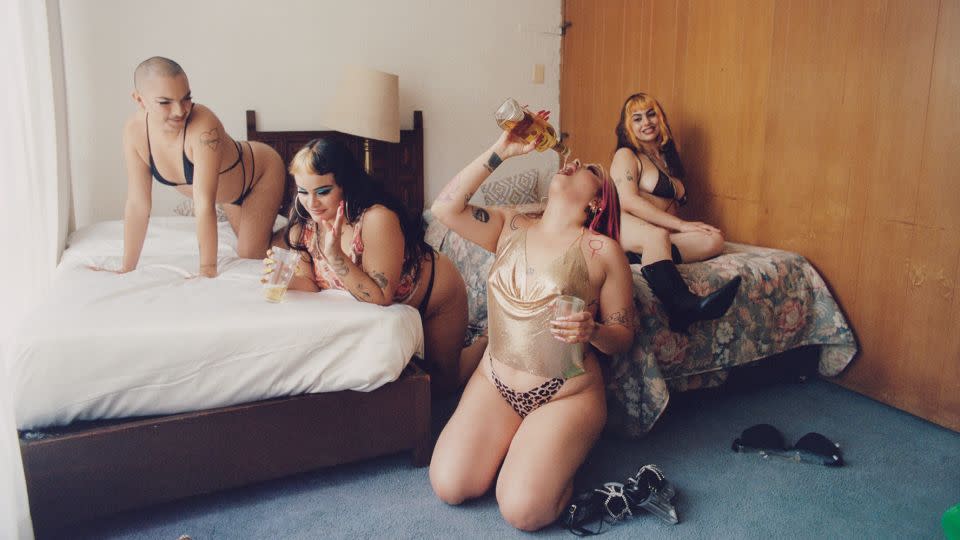
“The getting-ready part is sometimes the party,” Toledano explained in a phone interview. “Everyone was doing their makeup and drinking and laughing and doing each other’s hair.” They never made it out, she added. Instead, more friends came to them.
Comprising hundreds of vibrant photos of her friends and acquaintances, Toledano titled her book “No Mames,” which translates literally to “Don’t Suck” but is used as a catch-all phrase in Mexico roughly equivalent to “No f***king way.” It was a saying she and her friends often exclaimed as they spent time together and made photographs, and on the day of Karla’s argument with her boyfriend, they began to chant it together in unison.
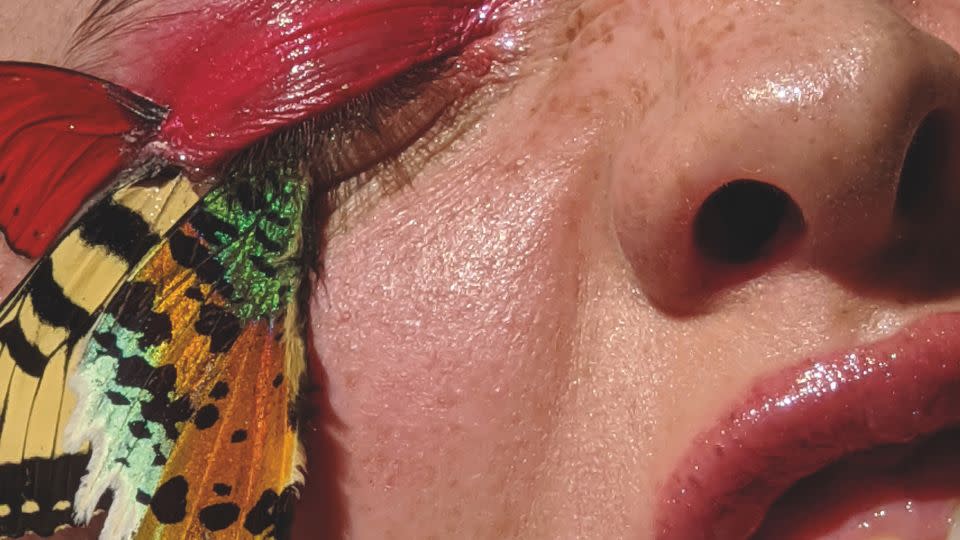
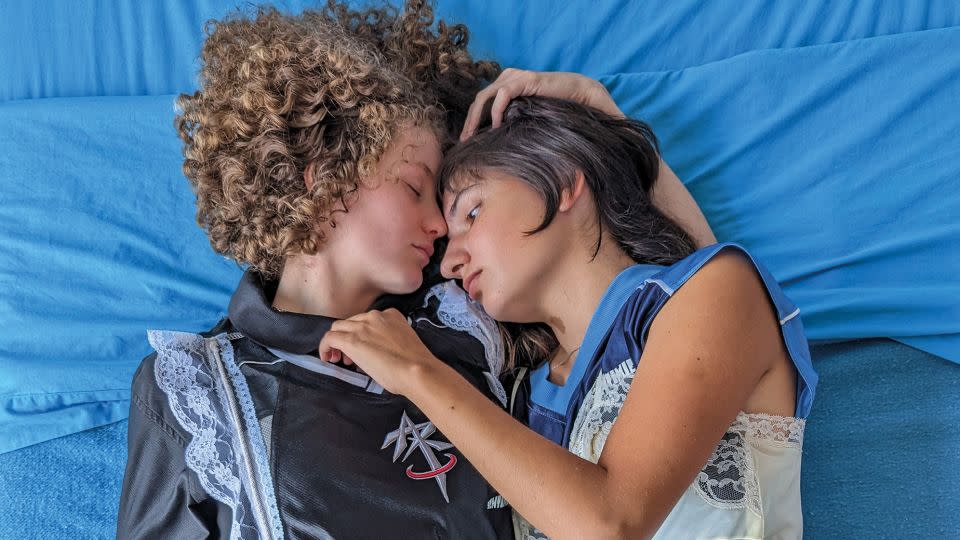
As much as Toledano’s body of work is about the richness of Mexico City’s LGBTQ community, it’s also a snapshot of her own experiences, she explained. “It’s my life that I lived here… and my shared time with all these people,” she said.
“There’s a type of ease and warmth to this place, and people that drew me in right away. So I just kept coming back.”
Making family
Across her photography, Toledano takes effortlessly intimate portraits, from a separate daydream-like series of young couples in love to commissioned shoots for Nike and W magazine with celebrities including Bella Hadid and Paris Hilton.
In Mexico City, Toledano’s images became a mix of both candid and staged moments. Some, like a close-up of ethereal butterfly makeup on her friend Maria, are meant to evoke fantasy; other photographs are raw and tender. In one group portrait, a trans woman named Aine, who runs a refuge for LGBTQ people in her home need on the outskirts of the city, poses in her home with two close companions and a framed portrait of her late trans mother, Zury.
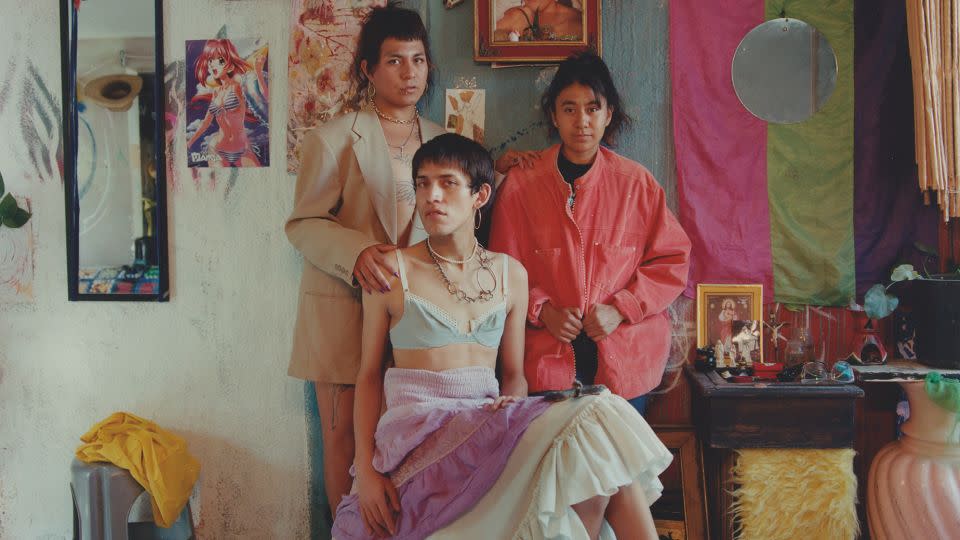
“That was a moment of stillness. Later, we go out, they drink, they sell clothes on the street; there’s a lot of movement and performance with them,” Toledano recalled of the day. “This is a moment of love, and a moment of connection — of making a family and having a chosen family.”
One person who appears again and again in “No Mames” is Havi, one of Toledano’s first friends in the city, who also contributed the opening text for the book.
In some portraits, Havi is posed, in a pink mini dress or ethereal, glittering gemstone makeup, the tattoo “Te quiero,” or “I love you,” scrawled underneath her eye. Other images are stripped back: Havi held by her boyfriend in a softly lit bedroom, or nude and curled up in the bath. For the latter image, Toledano photographed her two weeks after she underwent breast augmentation surgery as part of her gender transition, her chest tattoos bisected by the fresh red scarring, her body cradled by the water.
“There’s something so calm about this photo — it’s not about the beauty, it’s about the feeling and her transformation in a very fulfilling moment for her,” Toledano said.
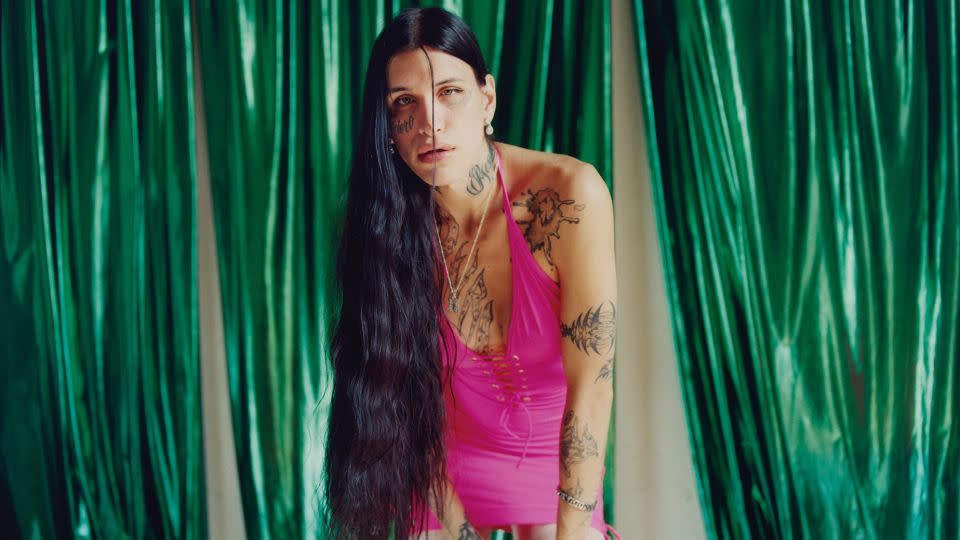
An American friend of Havi’s had helped organize crowdfunding for the surgery, according to Toledano. She recalled a conversation she had at the time with Havi about the term “gender-affirming care,” which the friend had used in the campaign but was unfamiliar to Havi.
“She (Havi) understood this is a term to affirm yourself by society, and by how people look at you,” Toledano said. “Havi is a really strong and confident person, she always was. And she said to me, ‘I never needed this confirmation, I always felt like a woman… It’s funny that this is what this surgery is being referred to, as something we need by society and not the other way around.’”
Presence and ease
In Havi’s opening text, she addresses Toledano’s thoughtful approach to her work, a process in which the photographer consciously avoids centering herself as the artist or chronicler in the story of her subjects’ lives.
“Protagonism and genius as we understand it from a white male gaze is absent, but the image is full of a personal approach where everyone involved is sharing time,” Havi writes. “You can’t see her, but she’s there, sometimes sitting on the mountain of clothes, other (times) getting her feet wet after filling the tub with water. She’s in the colors, in the light that fills the walls, in the subtle smile on my face.”
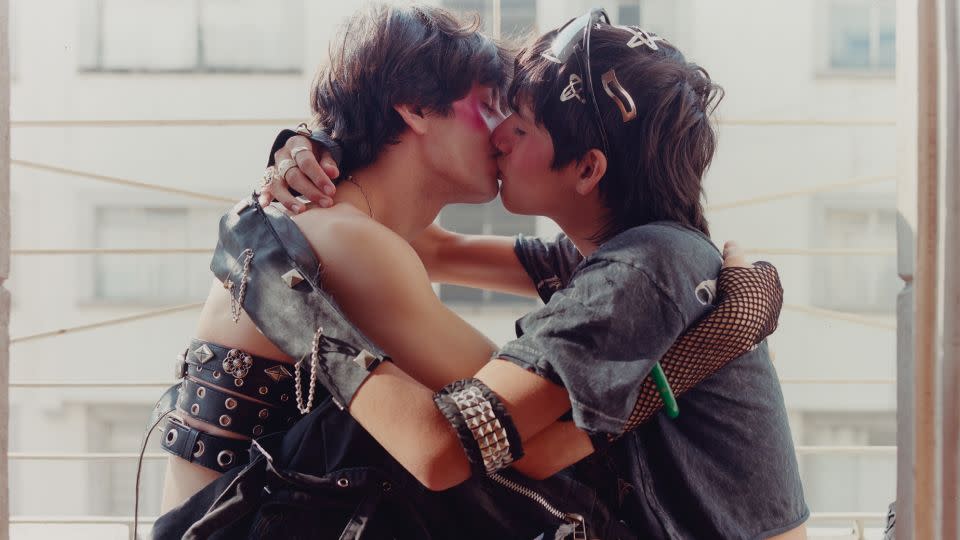
Toledano says that rather than steer the direction of a scene, she stayed open to whatever unfolded in front of her camera.
“You can know someone for five years and still meet them for the first time,” Toledano said of her perspective. “I like the spontaneity and the opportunity that the moment offers. So it’s the connection between us; it’s the way I look at them, it’s the way they look at me, it’s the way they look at themselves, and who they arrive as that day.”
Ultimately, she wants to show the joy and deep love shared within Mexico City’s queer community. Many images of LGBTQ life more broadly have depicted “struggle and resistance,” she said. And while that is still very much part of their lives, she added, “I think this way of practicing art and joy… supporting one another is also a way of resistance.”
“No Mames” is available from Damiani Books.
For more CNN news and newsletters create an account at CNN.com
